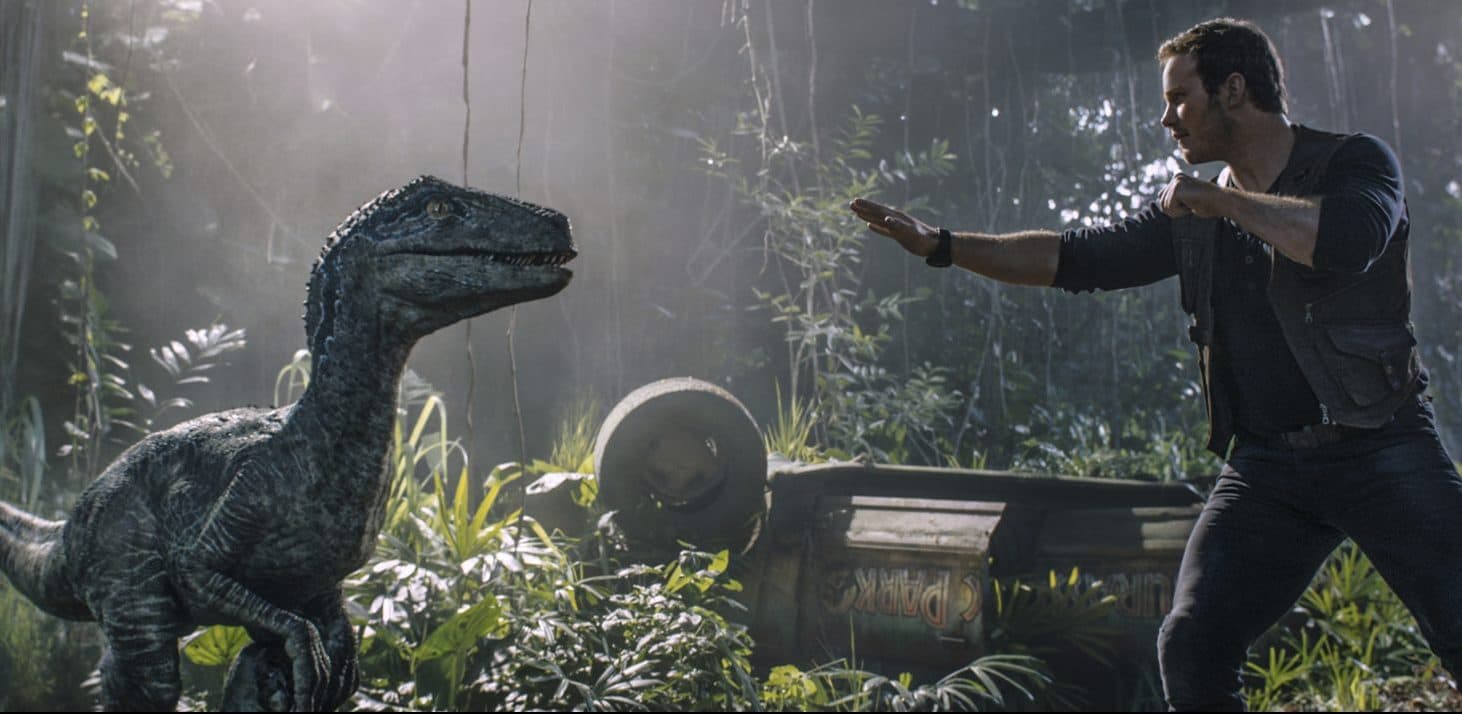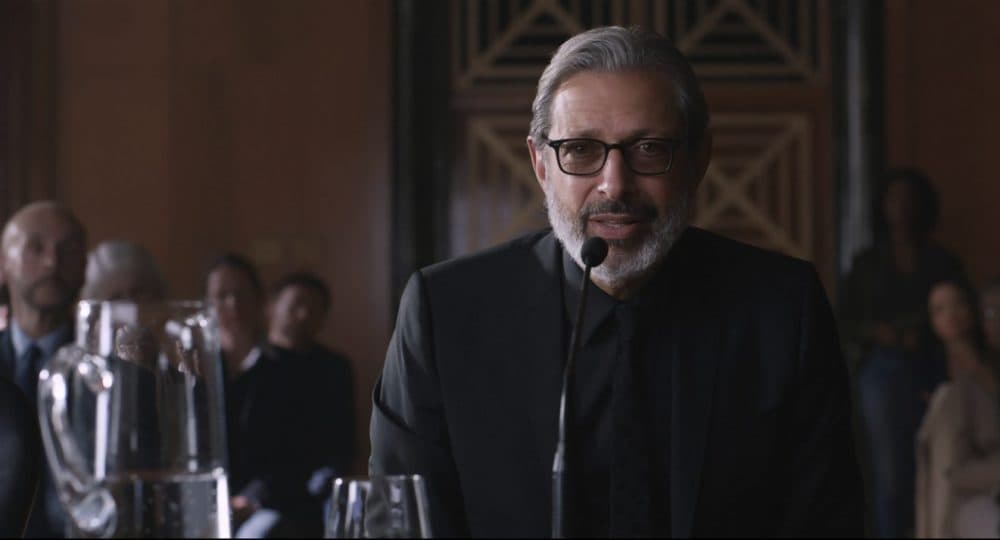Advertisement
Review
'Jurassic Park' Was Groundbreaking 25 Years Ago, But Once Was Enough

"Do you remember the first time you ever saw a dinosaur?" asks a wide-eyed Bryce Dallas Howard while tinkling piano music plays in the background, attempting to conjure a sense of childhood wonder missing from the otherwise ugly and cluttered “Jurassic World: Fallen Kingdom.”
The sad truth is, CGI miracles have become so commonplace over the 25 years since Steven Spielberg’s groundbreaking “Jurassic Park” launched a whole new anything-goes blockbuster era, such spectacles have become something of a yawn. They even made a movie about this phenomenon a few years ago; it was called “Jurassic World.”
The snickering meta-text of Colin Trevorrow’s smash 2015 reboot was that theme park attendees had become so bored by these paleontological marvels that the corporation running the show had to start manufacturing bigger and better monsters to keep the kids coming back. Thus the movie became an allegory for itself and the inevitable stakes-raising of the sequel business, albeit executed in a manner more sour than smart. It was a film that felt not just contemptuous of its audience but also of its own existence, snidely deploying John Williams’ soaring original theme music over a product placement-riddled shot of a food court. It is perhaps poetic justice then that “Jurassic World” went on to become one of the highest grossing movies of all time even though I’ve never met anyone who likes it very much.
The inevitable follow-up has an ungainly, rushed quality -- feeling more like one of those off-brand cheapo sequels from the 1980s than a modern franchise behemoth. (This might be the shoddiest-looking $170 million movie I’ve ever seen.) Directed by talented technician J.A. Bayona from a screenplay credited to Trevorrow and his regular writing partner Derek Connolly, the movie feels Frankensteined together from three or four different story ideas that all kind of cancel each other out. You never know what’s going to happen next because the characters’ motivations keep changing from scene to scene.
The short version is that the now-abandoned dinosaur island is about to be wiped out by a volcano, and Howard’s profit-obsessed corporate shrew has become an endangered species activist, attempting to alleviate any guilt over her complicity in the deaths of dozens of people during the previous picture by rescuing the animals that ate them. Along comes a billionaire played by James Cromwell, who we’re told was business partners with Richard Attenborough’s impresario in the original picture, and I guess his name just never came up in all those other movies. (Then again, this is the franchise that tried to get away with “oh by the way, there was another dinosaur island we forgot to tell you about” as a previous sequel setup.)
So it falls upon Howard to recruit her ex-boyfriend -- obnoxiously macho raptor-whisperer Chris Pratt -- for a Cromwell-funded expedition back to where they almost died so they can round up all the creatures that tried to kill them while the place is in the process of being engulfed by lava. It’s an idiotic plan that nobody in the writing process ever quite cracked how to justify, compounded by the problem that since they’ve tried to tone down the couple’s boorishly retrograde, sexist banter there’s really not much left for these two to talk about.
Advertisement
As characters carry on about how we cannot commit these magnificent animals to re-extinction, you might wonder why don’t they just make more dinosaurs? Well it turns out somebody already did, and the entire first hour of “Fallen Kingdom” was basically a dino-sized red herring. The rest is a ruckus of prehistoric creatures clomping around Cromwell’s massive country manor, where a slimy arms dealer (Toby Jones) is attempting to auction off a weaponized, genetically enhanced strain of velociraptors to a gaggle of shady international bad guy types who will of course imminently become some lizard’s lunch.
There are a lot of different movies competing for your attention here, including a creepy Gothic family melodrama featuring Geraldine Chaplin as a mysterious maid looking after a child (Isabella Sermon) of indeterminate origin. In pictures both excellent (2007’s “The Orphanage”) and appalling (2016’s “A Monster Calls”) Bayona has proved himself an expert bloodletter unencumbered by empathy or good taste. But “Fallen Kingdom” isn’t quite as sadistic as "Jurassic World" -- the movie feels more mechanical than surly, its individual set pieces exhibiting an obligatory, box-checking quality endemic in unnecessary sequels.
For all its technological advances, 1993’s “Jurassic Park” was still second-tier Spielberg, mostly notable for a giddy fizz he brought to the suspense sequences that felt like a rejuvenation for the slumping director after his high-profile duds “Always” and “Hook.” But nobody at the time was going to mistake that flimsy script for the second coming of “Jaws,” until subsequent blockbusters that followed in its wake such as “Twister” and “Independence Day” made “Jurassic Park” look like a model of Aristotelian discipline. It’s worth remembering that the film’s most enduring, iconic shot is not a special effect nor even a dinosaur, but rather ripples in a cup of water.
“Jurassic World: Fallen Kingdom” is rather annoyingly full of constant callbacks and references to Spielberg’s original picture, from the old rearview mirror gag to the now-clichéd doorknob reveal. But it’s telling that Jeff Goldblum spends his entire, fleetingly brief cameo with a glass of water sitting right in front of him, and nobody ever thinks to make it ripple.

